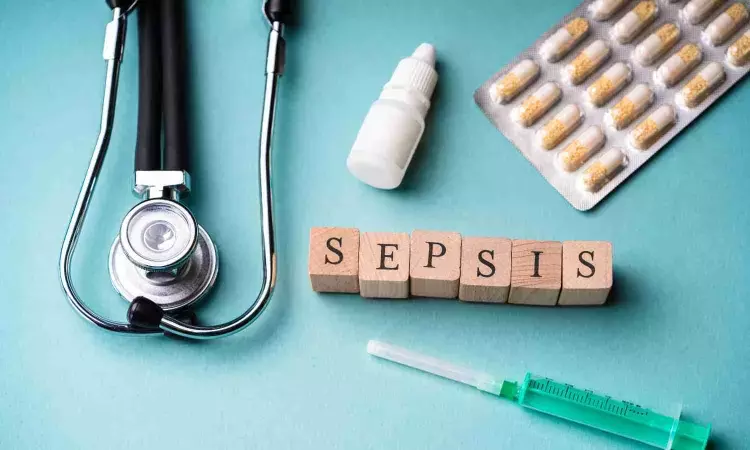- Home
- Medical news & Guidelines
- Anesthesiology
- Cardiology and CTVS
- Critical Care
- Dentistry
- Dermatology
- Diabetes and Endocrinology
- ENT
- Gastroenterology
- Medicine
- Nephrology
- Neurology
- Obstretics-Gynaecology
- Oncology
- Ophthalmology
- Orthopaedics
- Pediatrics-Neonatology
- Psychiatry
- Pulmonology
- Radiology
- Surgery
- Urology
- Laboratory Medicine
- Diet
- Nursing
- Paramedical
- Physiotherapy
- Health news
- Fact Check
- Bone Health Fact Check
- Brain Health Fact Check
- Cancer Related Fact Check
- Child Care Fact Check
- Dental and oral health fact check
- Diabetes and metabolic health fact check
- Diet and Nutrition Fact Check
- Eye and ENT Care Fact Check
- Fitness fact check
- Gut health fact check
- Heart health fact check
- Kidney health fact check
- Medical education fact check
- Men's health fact check
- Respiratory fact check
- Skin and hair care fact check
- Vaccine and Immunization fact check
- Women's health fact check
- AYUSH
- State News
- Andaman and Nicobar Islands
- Andhra Pradesh
- Arunachal Pradesh
- Assam
- Bihar
- Chandigarh
- Chattisgarh
- Dadra and Nagar Haveli
- Daman and Diu
- Delhi
- Goa
- Gujarat
- Haryana
- Himachal Pradesh
- Jammu & Kashmir
- Jharkhand
- Karnataka
- Kerala
- Ladakh
- Lakshadweep
- Madhya Pradesh
- Maharashtra
- Manipur
- Meghalaya
- Mizoram
- Nagaland
- Odisha
- Puducherry
- Punjab
- Rajasthan
- Sikkim
- Tamil Nadu
- Telangana
- Tripura
- Uttar Pradesh
- Uttrakhand
- West Bengal
- Medical Education
- Industry
Study identifies umbilical cord blood biomarkers of early onset sepsis in preterm newborns

Scientists from Stanley Manne Children's Research Institute at Ann & Robert H. Lurie Children's Hospital of Chicago and colleagues identified several proteins from the umbilical cord blood of preterm newborns that signal acute systemic inflammation as an immune response to infection, providing objective and noninvasive means to diagnose early onset sepsis. This finding could spare infants from prolonged exposure to unnecessary antibiotics, which leaves them at risk for subsequent serious infections and dysregulation of the microbiome that can impact the immune system and metabolism. Results were published in JCI Insight.
Early onset sepsis occurs within 72 hours of life and is more common in preterm infants. It usually develops in utero, and intraamniotic infection is often the trigger for preterm birth. Early onset sepsis is hard to diagnose definitively from clinical signs, so antibiotics are started while waiting for culture results. Among very low birth weight infants nationally, 78 percent receive antibiotics after delivery. Around 25 percent of these babies are continued on antibiotics even when culture results are negative because they are presumed to have sepsis.
“Cord blood is an excellent source of information on the state of the baby’s health at the time of delivery. Cord blood biomarker results can be available within 24 hours, allowing physicians to rule out early onset sepsis and discontinue antibiotics with more confidence,” said lead author Leena B. Mithal, MD, pediatric infectious diseases specialist and Neal, Kathleen, and Adam Kulick Endowed Research Scholar at Lurie Children’s, as well as Associate Professor of Pediatrics at Northwestern University Feinberg School of Medicine. “This could be an important advance in the care of premature infants.”
Dr. Mithal and colleagues also developed a machine learning diagnostic algorithm based on cord blood biomarkers and risk factors for early onset sepsis. This innovation has a patent pending.
“The next step will be to validate our findings through multicenter studies and clinical trials,” said Dr. Mithal.
Reference:
Leena B. Mithal, Mark E. Becker, Cord blood proteomics identifies biomarkers of early-onset neonatal sepsis, JCI Insight, DOI: 10.1172/jci.insight.193826.
Dr Kamal Kant Kohli-MBBS, DTCD- a chest specialist with more than 30 years of practice and a flair for writing clinical articles, Dr Kamal Kant Kohli joined Medical Dialogues as a Chief Editor of Medical News. Besides writing articles, as an editor, he proofreads and verifies all the medical content published on Medical Dialogues including those coming from journals, studies,medical conferences,guidelines etc. Email: drkohli@medicaldialogues.in. Contact no. 011-43720751


